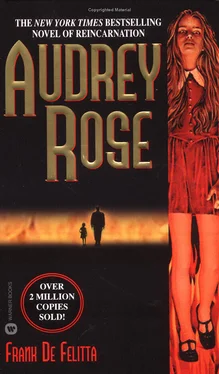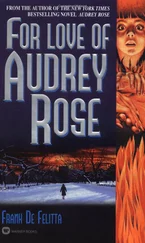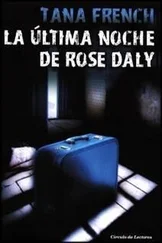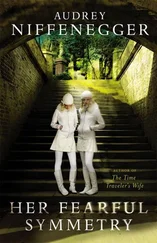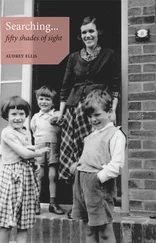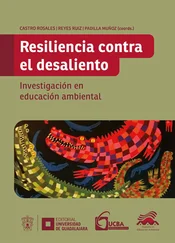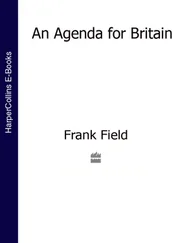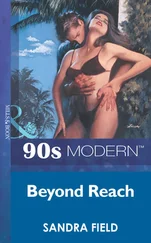Frank De Felitta - Audrey Rose
Здесь есть возможность читать онлайн «Frank De Felitta - Audrey Rose» весь текст электронной книги совершенно бесплатно (целиком полную версию без сокращений). В некоторых случаях можно слушать аудио, скачать через торрент в формате fb2 и присутствует краткое содержание. Год выпуска: 1975, ISBN: 1975, Издательство: Putnam, Жанр: Триллер, Ужасы и Мистика, на английском языке. Описание произведения, (предисловие) а так же отзывы посетителей доступны на портале библиотеки ЛибКат.
- Название:Audrey Rose
- Автор:
- Издательство:Putnam
- Жанр:
- Год:1975
- ISBN:9780399116063
- Рейтинг книги:4 / 5. Голосов: 1
-
Избранное:Добавить в избранное
- Отзывы:
-
Ваша оценка:
- 80
- 1
- 2
- 3
- 4
- 5
Audrey Rose: краткое содержание, описание и аннотация
Предлагаем к чтению аннотацию, описание, краткое содержание или предисловие (зависит от того, что написал сам автор книги «Audrey Rose»). Если вы не нашли необходимую информацию о книге — напишите в комментариях, мы постараемся отыскать её.
Audrey Rose — читать онлайн бесплатно полную книгу (весь текст) целиком
Ниже представлен текст книги, разбитый по страницам. Система сохранения места последней прочитанной страницы, позволяет с удобством читать онлайн бесплатно книгу «Audrey Rose», без необходимости каждый раз заново искать на чём Вы остановились. Поставьте закладку, и сможете в любой момент перейти на страницу, на которой закончили чтение.
Интервал:
Закладка:
A week before—it was a Monday, and Janice had skipped lunch to run some errands—Bill had invited Scott Velie to join him. Over tankards of beer and short ribs steeped in creamy horseradish sauce, Velie had identified each of Brice Mack’s cohorts for Bill and filled him in on their backgrounds.
“The two young guys are lawyers doing research and general legwork in the courthouse. The dignified old duffer with the rimless glasses and the goatee is Willard Ahmanson, professor of religious studies at NYU. The thin pimply guy is a legal secretary, name of Fred Hudson; he used to work as a court clerk. The old disreputable-looking character drinking whiskey neats is an ex-cop named Brennigan.” Velie smiled and winked. “Private eye.” Then, after chewing a forkful of meat and washing it down with beer, he added, “They’re all on run-of-the-trial retainers, which, when added up, comes to quite a piece of change.”
“Hoover’s got plenty.”
“Really? Well, that’s not all he’s paying for. They’ve got a Hindu maharishi stashed away at the Waldorf. A man named Gupta Pradesh, reputed to be one of India’s leading yogis. Flew him in all the way from Calcutta.”
Swallowing the rich food, Bill had experienced a momentary nausea as the full breadth and scope of Hoover’s defense suddenly struck him. There were no lengths or extremes the son of a bitch wasn’t prepared to go to prove his fucking point.
“Why is he paying a detective?”
“To get a line on your daughter’s nightmares. Brennigan’s been nosing around Dr. Kaplan’s office. With no luck, I’m pleased to say.”
Bill felt a quick surge of warmth for Kaplan and for all doctors in general. They were like priests. Tight lipped. Under the Hippocratic Oath to betray no confidence.
“Can Mack bring him into court to testify?”
“Certainly. But that doesn’t mean he’s going to be able to get answers to all his questions.”
“What do you mean?”
“Any communication between patient and doctor is privileged in the State of New York and, as such, cannot be elicited except under certain conditions. For example, if the patient should consent to the doctor’s testifying. Which she certainly is not about to do.”
Hoover and his attorney were seated at the defense table when Janice and Bill entered the courtroom at one twenty-six. Typically, Brice Mack was engaged in an animated one-sided conversation while his client doodled furiously on his pad, engrossed in his own mysterious labors and betraying no sign that he was the least interested or even heard what his lawyer was saying.
The spectators’ section of the courtroom was less than a quarter filled, and only one reporter, the woman, occupied the long row reserved for the press. The man from UP had not bothered to return. On the basis of all that had been heard and what meager coverage it had received in the press, the trial held little promise of being anything more than another routine, predictable, open-and-shut case. Thus far the proceedings had augured no slight hint of the drama to come; hence the house was definitely no sellout.
A few seconds before one thirty Scott Velie and two assistants ambled up to the prosecution’s table, where they remained standing and chatting quietly. In another moment what few people there were in the courtroom rose to their feet as Judge Harmon T. Langley swished past the flag of the State of New York and nestled his black-robed bulk behind the altar of justice. His acolyte with shining sidearm and badge accompanied his progress with all the rigidity of a papal guardsman.
Up until the very second it took for the bench to settle in, gather its thoughts together, bring the court to session, and ask the crucial question of the defense, Brice Mack had serious doubts about its answer. Only two were possible. Either, “Yes, Your Honor, the defense is ready to proceed with its opening remarks.” Or, “No, Your Honor, the defense wishes to postpone its opening remarks until it commences the presentation of its case.”
The former answer would bring about a quick confrontation on the reincarnation issue and create a sudden-death situation; however, the jury would have been made privy to the defense’s contention and would hear the testimony of each witness for the prosecution in the light of that knowledge. An important consideration, since it would tend to soften and compromise the prosecution’s case in the jury’s mind.
The only benefit in the latter answer was to buy more time. It would postpone the reincarnation issue for at least a week since the state’s roster of witnesses was considerable—twelve according to Velie’s office—and allow them to continue their investigation of Ivy Templeton’s nightmares. Until now Brennigan had been singularly lacking in success in tracking down any leads or information. Dr. Kaplan, who certainly was aware they existed, remained closemouthed. The friends of the Templetons, the Federicos, were totally unapproachable. Still, the nightmares were a fact. They existed. They had come to plague the child twice in her life. Both times when Hoover was present in the city. His presence, Hoover contended, triggered these deeply disturbing experiences that never varied in content or degree.
As Elliot Hoover had described the nightmares to him, and if his accuracy could be trusted, they constituted the one direct link between the Templetons’ child, Ivy, and Hoover’s daughter, Audrey Rose—or, at least, his daughter’s soul.
Brice Mack felt a light film of sweat appear on his face. It always happened at these times, when his most serious concentration was directed at the basic issue in the case and he found himself giving sober credence to such concepts, actually employing detectives to match a living child to the soul of a dead child, that his face became moist and clammy and the ground began to shift under his feet. It was at such moments of weakness, when the mind-boggling enormity and effrontery of such a defense suddenly struck like a whiplash, that the placid, sincere, and assured face of Elliot Hoover would come to his rescue. After all, he would tell his quaking heart, a lawyer’s duty is not to question the validity of his client’s beliefs or to render a judgment on his competency to entertain such beliefs. A lawyer’s duty is only to represent the legal interests of his client and see to it that he receives a fair and just hearing under the law. But his quaking heart knew better.
Born and bred in a tradition of reality in a tough Bronx ghetto, harsh and uncompromising, put through school by the sweat and toil of a working mother, gaining his Ivy League degree via the indignity of a change of name (their quota on Jews, he had heard recently, had gone up one-half percent in the last five years), Brice Mack, né Bruce Marmorstein, knew the difference between what is and what ain’t. Or, as Walt Whitman more fancily put it, “He could resist the temptation to see what a thing ought to be rather than what it is.”
And he also knew a meshuganeh when he saw one.
“Yes, Your Honor.” Brice Mack rose and addressed the bench. “We are ready to proceed with our opening remarks.”
Janice sensed a palpable stiffening in Bill, a girding of inner resources for the blow about to come, as Brice Mack slowly pressed forward toward the jury box, smiling easily, his hand extended confidently.
“Ladies and gentlemen of the jury,” he began in a somewhat stilted and formal manner, “what I am about to tell you will take some time and will require your absolute attention, for what you are about to hear is unique in the annals of Anglo-Saxon jurisprudence. By the time this trial is over and this honorable court is adjourned; by the time the final words of the prosecution and the defense have been uttered and written into the court record; by the time you have returned to your seats in the jury box with a verdict which I am sure will be fair, just, and well considered; by that time, ladies and gentlemen of the jury, you and this court and the world at large will know that what took place in this courtroom—Part Seven of the Criminal Courts Building—will forever be memorialized in the history books and records that assiduously follow the progress of mankind’s most important steps on earth.” He stopped, carefully sustaining a dramatic pause before continuing. “What you will hear may shock you. May elicit an initial response of disbelief. May even bring smiles of derision to your faces. But I promise you, ladies and gentlemen of the jury, that before this trial is over, your shock will be replaced by understanding, your disbelief by total acceptance, and your derisive smiles will become smiles of pure joy and hope, for not only will the many proofs and testimonies we have amassed convince you to liberate a human being and free him from the fearsome punishment of imprisonment, these very same proofs and testimonies will serve to liberate each and every one of you sitting before me from the most fearsome and dreaded punishment known to man, the legacy we all inherit at birth and which hovers, shroudlike, above us through every day and night of our lives: the sure and certain knowledge of our own impermanence and our own personal oblivion.”
Читать дальшеИнтервал:
Закладка:
Похожие книги на «Audrey Rose»
Представляем Вашему вниманию похожие книги на «Audrey Rose» списком для выбора. Мы отобрали схожую по названию и смыслу литературу в надежде предоставить читателям больше вариантов отыскать новые, интересные, ещё непрочитанные произведения.
Обсуждение, отзывы о книге «Audrey Rose» и просто собственные мнения читателей. Оставьте ваши комментарии, напишите, что Вы думаете о произведении, его смысле или главных героях. Укажите что конкретно понравилось, а что нет, и почему Вы так считаете.
